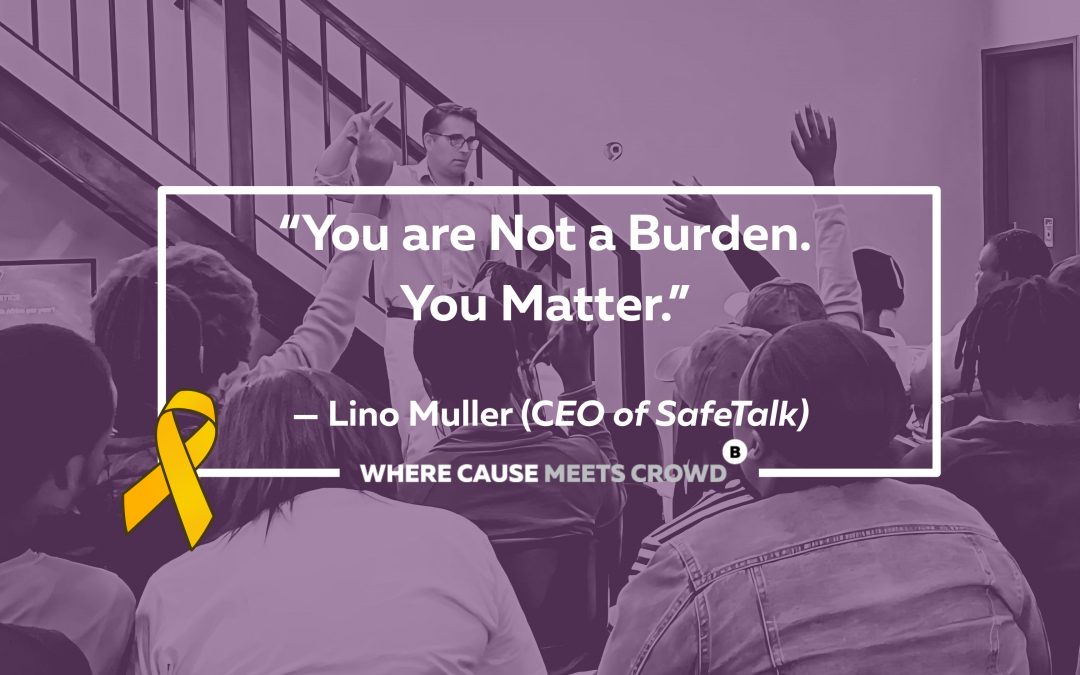The 10th of September—World Suicide Prevention Day—South Africa must face a crisis we often avoid. Lino Muller(49), CEO of SafeTalk, is asking us to answer with compassion and action: training teachers, parents and community leaders to spot warning signs, ask brave, caring questions and connect people to life-saving help. By prying open the silence, he’s starting a healing movement where children can speak and adults feel equipped to hold the big, scary word “suicide” with steadiness. To keep this work moving, he’s launched a community crowdfunding initiative so that the hope that SafeTalk delivers to so many can keep moving forward.
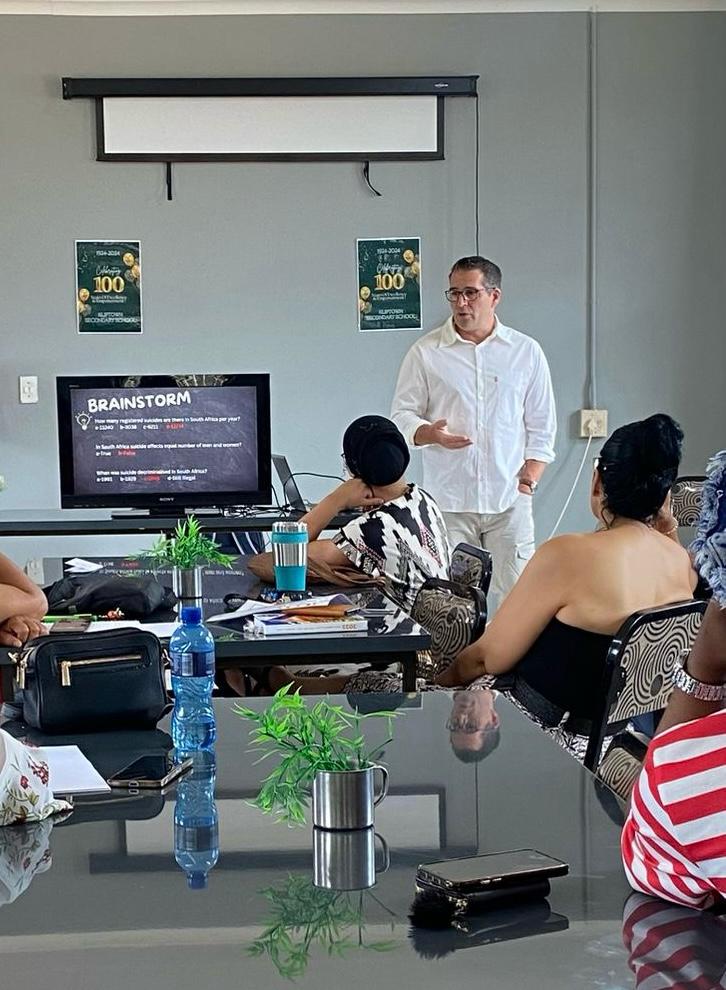
The person behind SafeTalks
Lino speaks English, Afrikaans, German and conversational Sesotho, shaped by a life moving between South Africa, Lesotho and Austria. He keeps grounded with exercise, connected breathing and quiet reading—but what steadies him most is the courage he witnesses in ordinary rooms.
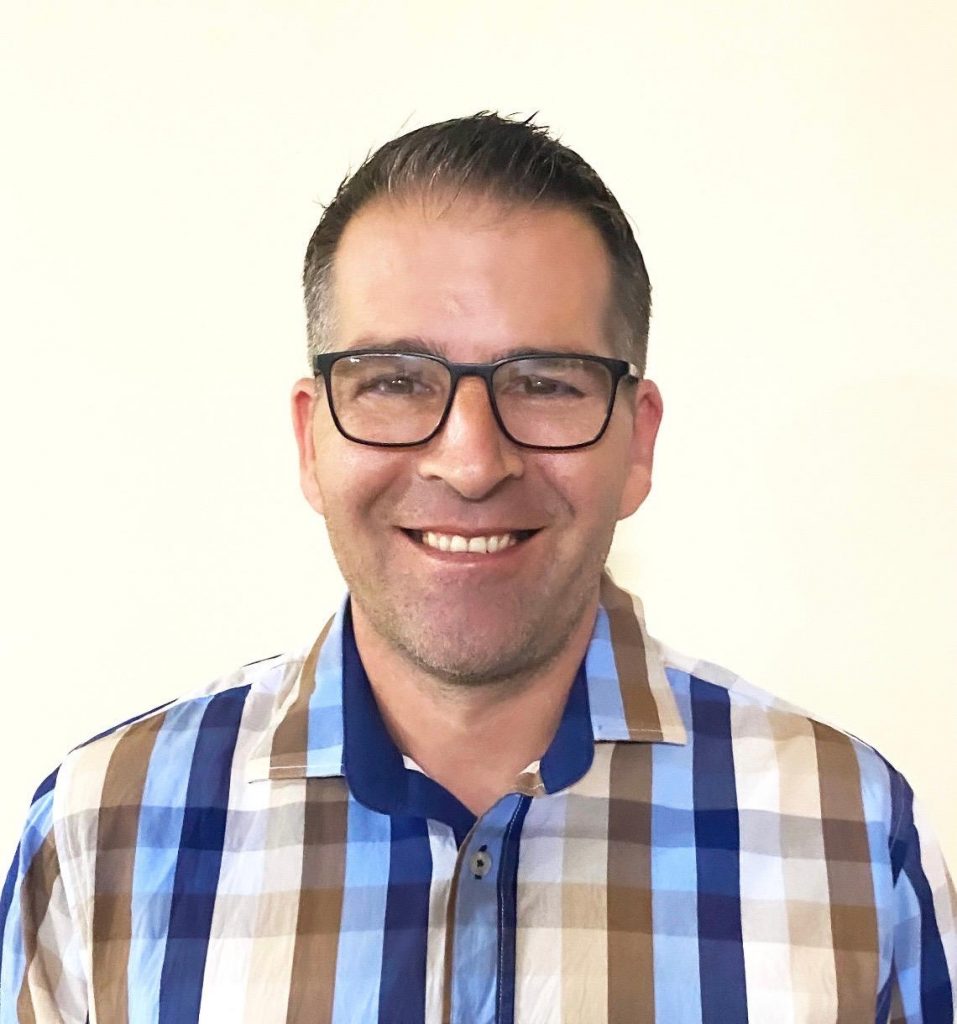
“Every session becomes an ‘aha’ moment,” he says. “People who have hidden their pain for years finally feel safe to speak.”
Twenty-five years ago, Lino’s brother died by suicide—an experience that taught him how stigma fuels silence.
“One of the strongest myths around suicide is that it’s selfish,” he reflects. “In reality, it’s the opposite. People who reach that point often believe their loved ones would be better off without them.”
Determined to change this narrative, Lino founded SafeTalk(2024) in Johannesburg, Gauteng, drawing on international best practice while tailoring the content to South African realities where resources are scarce and the need is great. SafeTalk’s focus is practical: awareness, anti-stigma education, and community training that equips ordinary people to notice distress, open a safe conversation, and connect someone to professional care.
What does a SafeTalks Workshop look like?
Inside a three- to four-hour SafeTalk workshop, participants practise how to ask directly about suicide in a safe way, listen without judgement, and guide a person to support.
“People leave feeling more confident to recognise the signs,” Lino says.
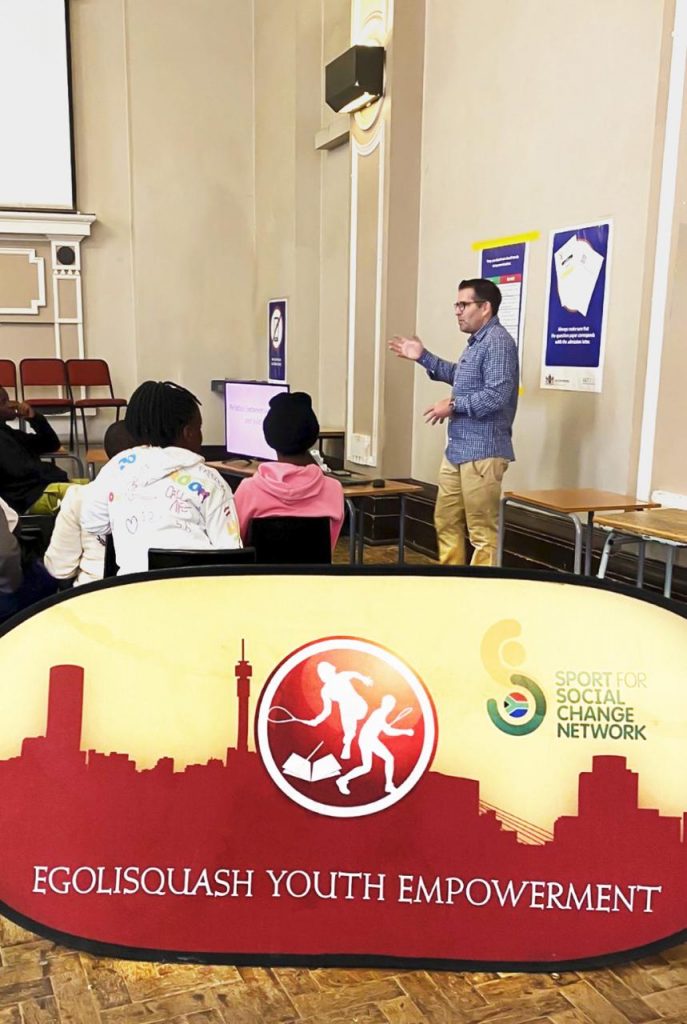
At a large primary school, a principal assured Lino there were “no mental-health issues” because discipline was strict. Lino invited 200 learners to stand, then to sit if a statement resonated:
Have you ever gone without food? Do you have problems you can’t talk about? Do you feel ashamed sharing your struggles?
By the third question, every learner was seated. He then asked them—anonymously—to write one thing they would never tell anyone. As he read a handful aloud, the room heard stories of self-harm, anxiety, depression and suicidal thoughts.
The principal wept. In private, she thanked Lino and said her approach would change. It was a stark, compassionate awakening: even where adults believe “there are no problems,” young people are carrying heavy, hidden burdens. SafeTalk exists to make those burdens visible—and bearable—by giving communities safe language, clear steps and real pathways to support.
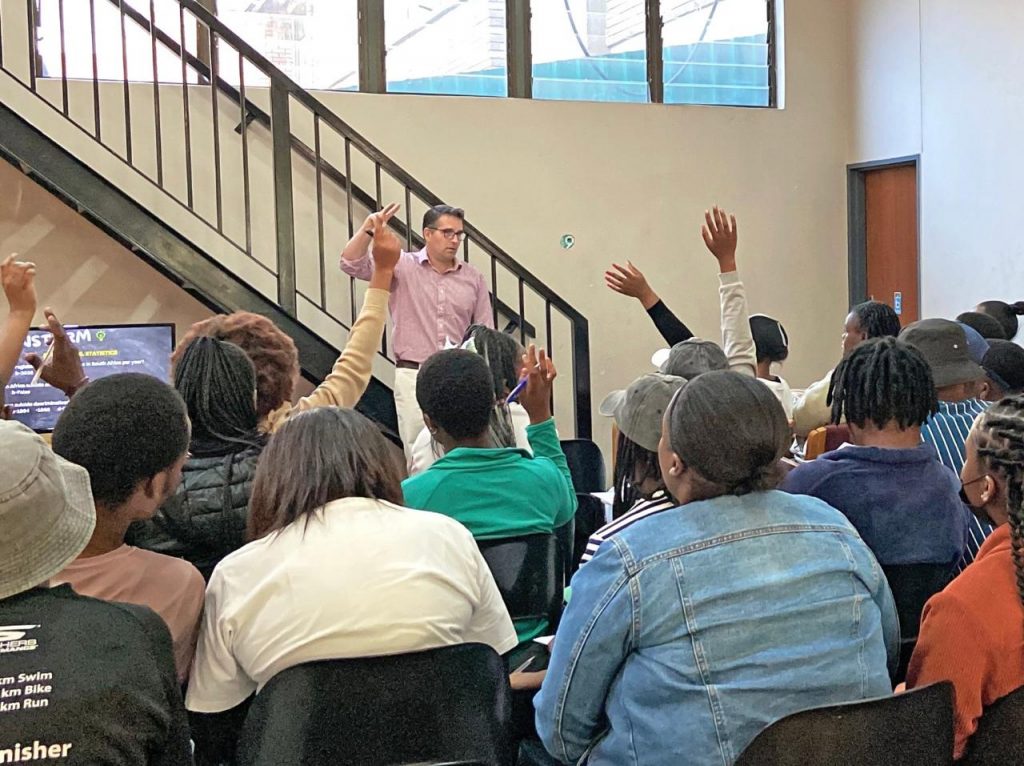
Why the work of SafeTalks is so important
Official figures suggest around 14,000 South Africans die by suicide each year—already a national emergency—and frontline experience shows many cases go unreported. The pain isn’t confined to teens; middle-aged adults are increasingly at risk too, often under the same roof. That’s the hard truth. The hopeful truth is just as real: when even one trained person is present in a school, clinic or workplace, the chances of someone reaching out rise dramatically. SafeTalk’s three-to-four-hour workshops turn fear into readiness—so the next time a learner whispers “I’m not okay,” someone nearby knows what to do.
“World Suicide Prevention Day is about more than awareness,” he says. “It is a call to end the silence, to see each other fully, and to create communities where no one feels invisible in their pain.”
SafeTalk is based in Johannesburg but also runs online workshops nationwide and travels where resources allow, ensuring access for communities that rarely receive specialised training, and in turn hope for those who didn’t know speaking out was ok.
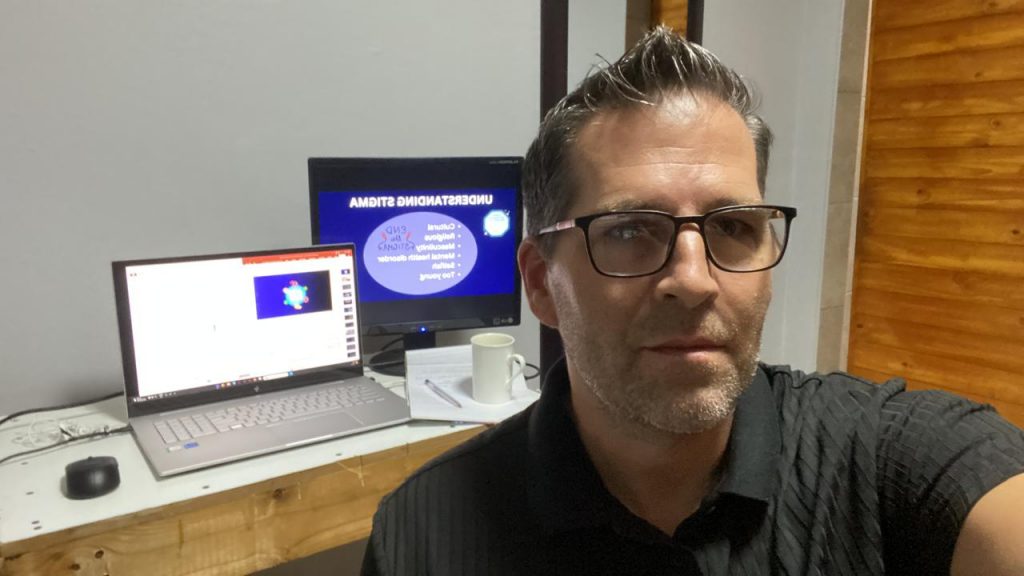
What R150,000 makes possible
Lino has carried roughly 98% of costs himself to date—training sessions, support groups, transport, venues, even borrowing equipment—because the need outpaced the funding. The BackaBuddy campaign seeks R150,000 to keep doors open and widen the circle of care:
- Training for teachers, parents, community leaders (and, as resources grow, nurses and police).
- Educational materials & awareness that reduce stigma and spread simple, lifesaving steps.
- Outreach to under-resourced and rural areas where help is scarcest.
- Dignity support—food, clothing and care—so conversations about mental health can land where stomachs aren’t empty.
Every rand turns into seats in a room, pages in a hand, fuel in a car, and—most importantly—confidence to speak out. As of now, early donors have contributed, and the gap to the goal is where you can make the difference.
A word from the CEO of LifeTalk himself
When we asked Lino what he would say to someone who felt like a burden he replied:
“You are not a burden. You matter. You’ve been carrying something heavy alone for too long—please reach out. One small step, one conversation, can start to lift that weight.”
For families, peers and colleagues, his advice is practical: show up, listen without judgement, check in again tomorrow, and help connect a person to care.
Immediate Support
For immediate support, South Africans can contact the SADAG Suicide Crisis Line on 0800 567 567, or WhatsApp 076 882 2775 / 087 163 2030. With steady backing, SafeTalk plans to complement these services with its own call-centre capacity to meet growing demand.
Conclusion
A once-off or recurring donation means more schools reached, more adults equipped, more children heard before harm. But the movement is bigger than money. Hope starts with one conversation: today, ask your classmate, your colleague, the shop attendant, the woman waiting for a taxi, “How are you—really?” A simple question can provide hope and maybe even save a life, because we are not meant to walk it alone.
If you would like to book a workshop or find out more about SafeTalk, visit Safetalk.
Call to Action
Here’s how you can help today in 3 steps:
- Share this story with friends, family and online communities.
- Support with volunteer time, venues, printing, transport or food parcels.
- Donate—every rand counts and directly powers training, support groups and outreach.
To support this amazing cause visit: https://www.backabuddy.co.za/campaign/save-lives-suicide-prevention-in-sa
Want impact stories and top crowdfunding tips? Sign up for our newsletter and join our community!

